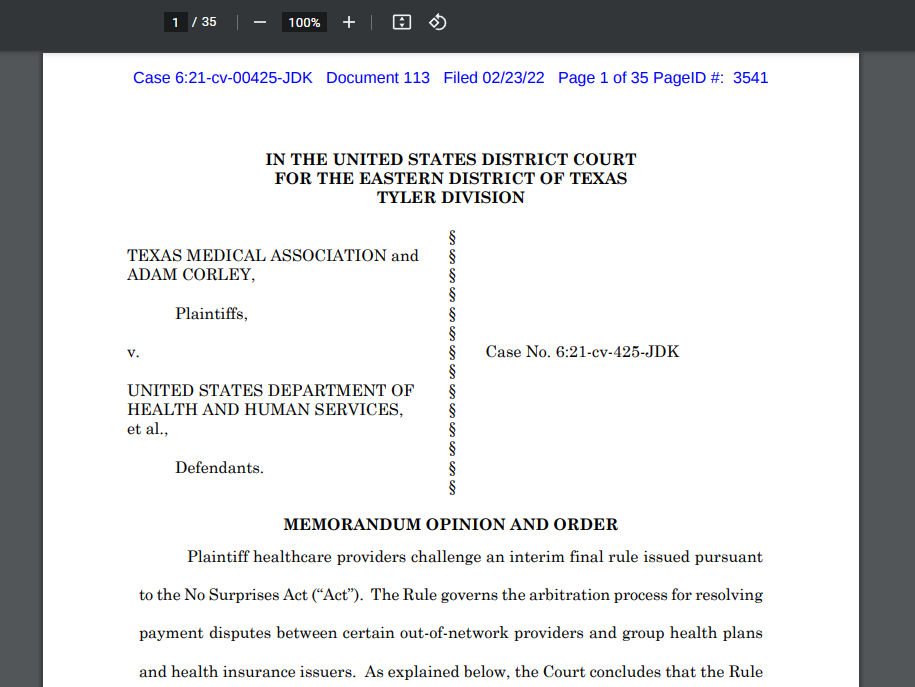This week, numerous news sources covered a Texas court ruling against part of the Surprise Billing Act regarding the arbitration of what fees an insurer pays to an out of network provider. The judge ruled in favor the Texas Medical Association and found that part of the rapidly-issued CMS regulations, which specify the exact price-setting pathway, were out of step with the law they were trying to implement.
Most of the articles didn't cite the judge's ruling. I found one that did (31pp).
See "EMS1" website and the article by Rachel Engel here. See the ruling at its cloud link here.
I think that surprise billing laws are important for the reference lab industry to track because they can affect the complex balance of different considerations for in-network contracting and out-of-network lab billing (at least in contexts where the surprise rules come into force). For example, there are also unexpected take-home lessons for telemedicine that consults into ER or hospital settings (e.g. here).
